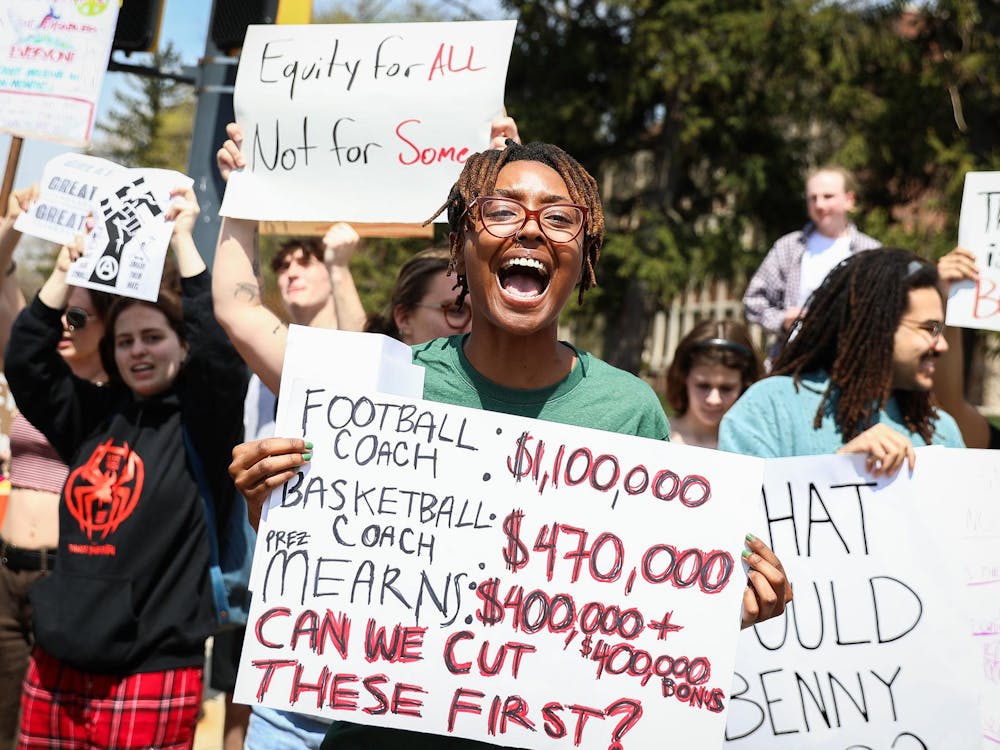Poverty Simulation
The Ball State Department of Sociology offered a Poverty Simulation, facilitated by TEAMwork for Quality Living, on Wednesday evening. It was a role-playing experience to learn about the reality of poverty.
According to the website, participants experienced a month of poverty compressed into an hour.
Alan Hovorka is a freshman journalism major and writes the column ‘Relative Value’ for the Daily News. His views do not necessarily agree with those of the newspaper. Write to Alan atafhovorka@bsu.edu.
At the start of Missouri’s Community Action Poverty Simulation on Wednesday night, I stared into the face of four strangers. For the next hour, these people would become my family as I role played a 7-year-old boy with ADHD who lives with his impoverished grandparents and hearing-impaired sister.
“Once you’re done here tonight, you get to go,” the woman running it said. “You don’t have to live this life.”
I didn’t know what to make of that.
The simulation started, and I spent the first week trying to get more money, pay bills and get food with my family. I did not attend school because by the time I got there, they turned me away with no compassion.
That gave me pause. Why would someone be rejected for wanting to learn, especially a person with a disability? Maybe the state had written us off.
I also started to wonder why I couldn’t really understand why they turned us away. Is it because you can’t truly understand what someone else in a different socioeconomic status is going through?
How can I completely understand a person’s perspective of being impoverished and having ADHD when I come from a comparatively perfect environment?
The week ended with me immobilized by a lack of resources and pondering what was even going on. I felt dejected because no one seemed to be helping my family or me.
That experience was foreign to me. I grew up as the only child on farmlands outside of a predominately rich, white Chicago suburb. While I didn’t have the wealth that my peers did, my parents had enough money to allow us to live comfortably. I was more or less spoiled, but I like to think I wasn’t ungrateful.
As the simulation’s second week began, I slowly started to become increasingly aware of a different perspective in life.
I was rushed off to school. I received mediocre instruction because the teacher didn’t seem to care. It seemed she was going through the motions.
At this point, I began to wonder if this is what poverty is. Is it waiting in a series of lines and using luck to beat time? Is it being treated as a second-class citizen because of my income?
On week three, there was no school and I followed my grandfather around and watched as he was denied by time or businesses the means to climb out of poverty.
We went to our house, which was search illegally. Drugs, which no one owned, were found.
The police officer arrested my grandfather and then almost sent my sister and me to child protection services.
No one believed the drugs didn’t belong to us. And we didn’t say anything about illegal search and seizure — it only came to me in retrospect.
At this point, I began to worry about the fact that I was no longer questioning the absurdity of these situations.
I accepted them at face value.
Once again, I heard: “Once you’re done here tonight, you get to go. You don’t have to live this life.”
Relief washed over me.
I realized that I can’t understand what it’s like to live like this. I can be aware of what people go through and sympathize with them. Importantly, I can treat them with respect as they really are human beings. But I can’t understand the pressure of that kind of life, especially not after one hour of a simulation.
The simulation reminded me of how my uncle said once he returned from the Vietnam War, people told him they understood what he went through. But unless you live that life, you don’t know what it’s like. Not through a simulation, not through reading stories.
The best you can be is tolerant, aware and accepting of others and how their experiences have shaped them.





